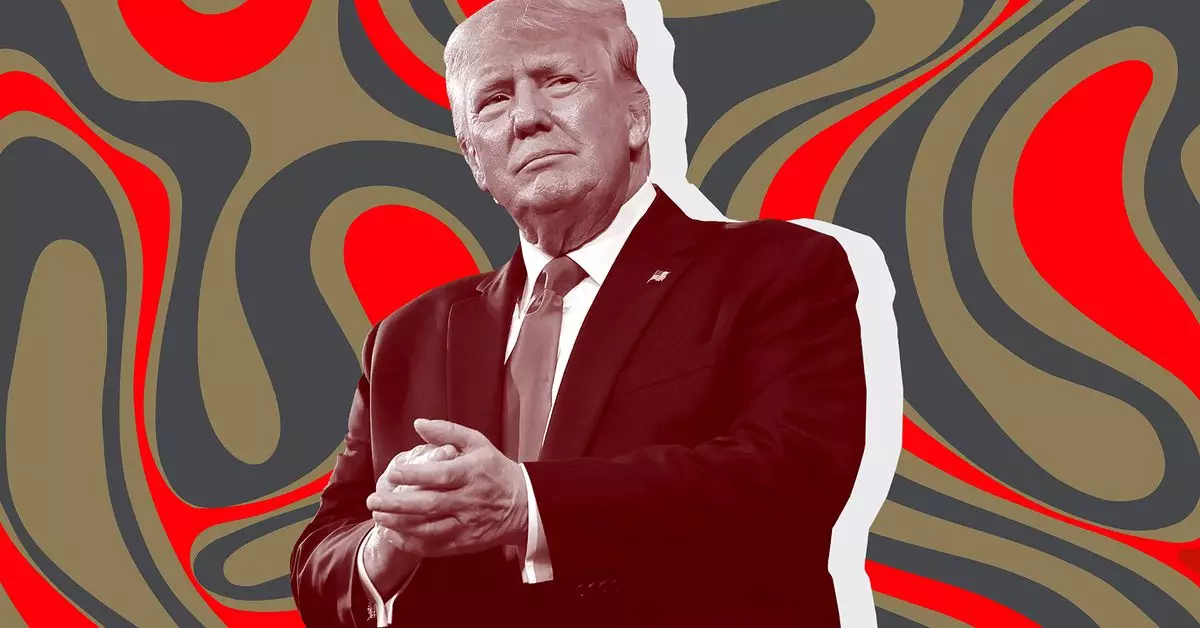In an ambitious move, World Liberty Financial, co-founded by former President Donald Trump, unveiled its cryptocurrency token WLFI this week. The hype surrounding the token was palpable, leading to an overwhelming response that the organization appears to have been unprepared for. Shortly after the token sale commenced on a Tuesday, the project’s website collapsed under the weight of high traffic, rendering it inaccessible to eager investors. This unforeseen difficulty highlights a disconnect between anticipated interest and operational readiness, raising questions about the company’s ability to manage significant consumer enthusiasm.
Zach Folkman, co-founder of World Liberty Financial, touted that more than 100,000 individuals had pre-registered to purchase the WLFI token as of the day before the launch. However, reality displayed a stark contrast to this optimism. Despite the initial interest reflected by the 72 million unique visits in the first hour, only a fraction of those engaged could complete their transactions. As of the latest reports, 5,317 unique wallet addresses were confirmed to possess the WLFI token, representing a meager market penetration from the promised 20 billion tokens available to the public.
The WLFI token is presented as a pivotal element of the World Liberty Financial platform, primarily designed for governance. Token holders will possess decision-making powers on various critical aspects, including protocol upgrades, partnerships, and addressing security risks within the ecosystem. In concept, this decentralization invites community involvement; however, the glaring irony lies in the fact that only accredited investors—a designation that requires specific financial criteria—are permitted to participate in purchasing the token.
This limitation raises significant ethical questions about the project’s professed mission. Advocating for financial inclusion, the project claims it aims to assist those who are unbanked or de-banked. Yet, as it stands, only those who meet the Securities and Exchange Commission’s strict accreditation requirements—wealthy individuals with substantial incomes or impressive net worth—can buy WLFI. This contradiction suggests a gap between the project’s ideals and its actual accessibility.
Adding to the project’s controversial nature is its branding and the affiliations of Trump’s family members. The recent release of a “gold paper” outlined Trump as the “chief crypto associate,” with his sons—Eric, Donald Jr., and Barron—identified as Web3 Ambassadors. This strategic positioning serves to leverage the Trump’s family’s notoriety and potential influence in the crypto marketplace. Nevertheless, the implications of involving political figures in a financial endeavor invite skepticism, particularly among those wary of intertwining political endorsements with financial products.
Potential and Pitfalls of Cryptocurrency Governance
World Liberty Financial’s platform aims to facilitate cryptocurrency lending and borrowing alongside access to third-party decentralized finance (DeFi) applications. The expectation of democratizing financial services is attractive, promising users the ability to engage in economic activities that were previously inaccessible. However, the initial mismanagement of the launch raises concerns about the operational competency necessary to sustain such promises.
The transition of traditional financial systems towards cryptocurrency through innovative projects like World Liberty Financial is transformative, but fraught with hurdles. With the cryptographic community already weary of scams and shaky ventures, the successful establishment of genuine governance systems that prioritize user input remains a quintessential challenge. For any project, a commitment to transparency and adaptability to early feedback is essential in establishing trust with users.
As the dust settles from the tumultuous launch, World Liberty Financial stands at a crucial juncture. The initial excitement, coupled with technical failures and governance limitations, poses a pivotal test for the integrity and intention of the project. How they navigate the aftermath of this launch could either solidify their position in the cryptocurrency ecosystem or deepen skepticism about their credibility. Whether World Liberty Financial can transform its ambitious vision into a dependable platform for the unbanked while operating within the regulatory framework will determine its future trajectory in this dynamic financial landscape.

